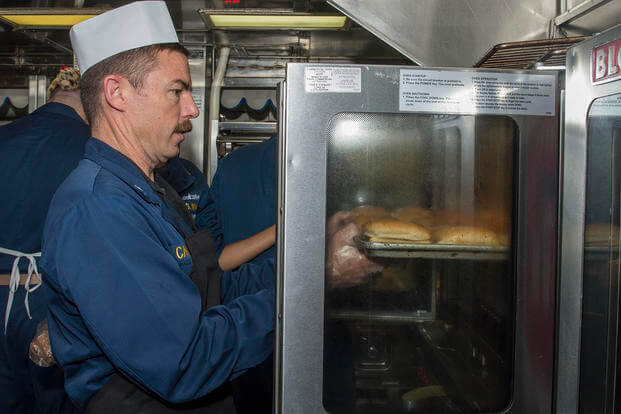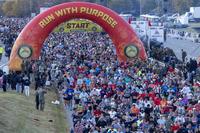From Halloween to New Year's Day, people tend to fall off the fitness and weight-loss wagon. There are many factors that will challenge the most disciplined of eaters and exercisers. Here is a list of things to beware of from November through January, with tips to avoid them from sabotaging your fitness goals:
1. Change of Seasons, Weather and Time
Setting the clocks back an hour and darkness arriving earlier each day can affect normal energy levels. Add in cold weather, and the desire for your outdoor jogging/walking routine has decreased to a standstill. Stay on top of the fitness time squeeze by getting the workout done before your day normally begins.
Missing your daily workout can cause you not to burn 400-500 (or more) calories a day. This can affect your weight gain during the holidays.
Tip: Even if it is 20-30 minutes of less sleep, you will find your daily productivity and energy levels will increase after spending a short period of time mixing in calisthenics and dumbbells for resistance training and a fast walk, run, bike or other form of cardio intervals. If the weather causes you to miss your daily runs, find an indoor option -- even if it is a cardio machine. Another option is an indoor basketball court or similarly distanced area, and try various pyramids while running from one end to the other, increasing repetitions in such exercises as burpees, push-ups, abs and squats.
Make it hard with a weight vest. See Weight Vest Wednesday Article for ideas and the Burpee Pyramid.
2. Halloween Candies in the House for November
If you have children, you likely have trick-or-treat candies by the sackful. You may just have the treats that no one came to pick up. This is an extra 1-2 pounds of weight and a trip to the dentist in the waiting.
Tip: If you can, get the treats out of the house quickly. Give it away or hide it from easy access, as a piece of candy can add up to several consumed a day if you are not careful. That will add up to several hundred calories of sugar a day, which means weight gain.
3. Parties with Neighbors, Friends and Colleagues Are Constant During November and December
Constant parties with friends and co-workers add several hours a week of sitting and eating or drinking alcoholic beverages, and all of that can crush your diet plans. In the height of sports season, watching football, basketball, baseball and hockey is another challenge you have to deal with during the final months of the year and beyond into the New Year. This high amount of sedentary and unproductive time during an average sports week leads to lower productivity and higher caloric intakes.
Tip: These are fun events that you still should attend, but be smart. Try a no-carb night at the party; focus only on meats (proteins) and drinking water or unsweetened beverages during the party or event. Limit alcoholic beverages to one or two, max.
4. Busy Travel and Shopping Season
Travel, eating meals in restaurants, and stressful shopping and traffic experiences compound into a double whammy of stress-eating and buying huge meals at restaurants.
Tip: Take your own food with you when you shop. Replace fast food with water, almonds, nuts, berries and easy-to-store fruits kept in the car. This will help you not only fight the temptations of eating fast food, but help you save money as well. Save yourself from hassle by shopping early and online.
5. Big Family Meals: Thanksgiving, Christmas, Hanukkah, New Year's, etc.
Big family meals often come with busy travel days and might even include a few nights in hotels. Away from home, you'll end up eating at restaurants or family member's homes where holiday snacks are plentiful. The calories run high during these family feasts.
Tip: Prior to Thanksgiving, do a butt-kicking workout. You will at least not feel guilty for hogging the turkey and mashed potatoes. Once again, try to limit the carbs to a few and eat plenty of turkey, boiled eggs and salads. Beware the big day of football on Thanksgiving. It is easy to sit idle for hours and take naps with a full stomach, only to eat and drink more throughout the day.
Don't wait for New Year's to get started. In fact, you may need less of a New Year's resolution if you can gain control of the next two months. Studies show that the average weight gained during November and December is between one and five pounds.
The low end of that scale is not that big of a deal overall, but the average weight gain for adults for the entire year is typically 1-2 pounds, but this weight typically stays on. If you are overweight, that average increases to five or more pounds just during the final two months of the year.
Study References
- Holiday Weight Gain Among Those Already Overweight
- Average Weight Loss During Holidays - Never Comes Off Typically
Stew Smith is a former Navy SEAL and fitness author certified as a Strength and Conditioning Specialist (CSCS) with the National Strength and Conditioning Association. Visit his Fitness eBook store if you're looking to start a workout program to create a healthy lifestyle. Send your fitness questions to stew@stewsmith.com.
Want to Learn More About Military Life?
Whether you're thinking of joining the military, looking for fitness and basic training tips, or keeping up with military life and benefits, Military.com has you covered. Subscribe to Military.com to have military news, updates and resources delivered directly to your inbox.



















